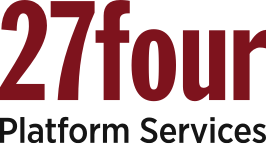Black-owned asset manager Mianzo pushes into SA’s unit trust inner circle with a radically low-cost option
A small black-owned investment firm, Mianzo Asset Management, plans to take on SA’s investment establishment by offering two new retail unit trusts with fee structures that rival low-cost passive investment products.
Mianzo, one of a handful of black-owned asset managers in Cape Town, has partnered with 27four Investment Managers to roll out the Mianzo Equity 27four and Mianzo CPI+3% 27four unit trusts.
The two retail savings products aim to attract new inflows from historically ignored lower-income communities who can access the products for as little as R199 a month or via a R1,999 lump sum.
What’s more, the products charge a management fee of just 0.46% and have no performance fees, a far cry from the total expense ratios of most established players, which tend to hover around the 2% mark.
While Mianzo is hardly (yet) a household name, its plan could signal further erosion to the dominance of SA’s listed investment incumbents.
Asset managers ranging from Coronation to Ninety One and even Sygnia have suffered declines in institutional fund flows in 2020 as the impact of the pandemic resulted in retrenched workers suspending monthly retirement fund contributions or accessing their funds to make ends meet.
“It’s not sustainable in the long term to play only in the institutional space because of the shrinking asset pool and increased competition, so we are looking to diversify our revenue streams,” says Zukile Nchukane, head of business development at Mianzo.
“We really want to build a retail book, and to do that we are planning to bring in new investors in the lower LSM market.
“Ultimately we want to play in the discretionary savings space rather than being only exposed in the retirement space by attracting money from savings pools that traditionally save in bank accounts rather than unit trusts. That would include … stokvels, women’s groups, public servants and even street vendors.”
The industry is also under pressure from the government to make greater efforts to transform 27 years after the end of apartheid.
Deputy finance minister David Masondo said in December that black-owned asset managers oversee just 9% of SA’s total savings pool, though this figure comprises only privately held asset managers and excludes, for instance, the Public Investment Corp.
Mianzo, which means “new beginnings” in Swahili, has about R8bn in assets under management, of which more than 99% represents institutional capital rather than retail funds. While the company has only about R85m in retail assets, it has ambitious plans to grow this by tapping new flows from lower-income consumers as well as the emerging black middle class, many of whom still favour saving in traditional bank accounts rather than unit trusts.
Mianzo’s goal is to grow its retail portfolio to about 5% of assets under management by 2025 and between 20% and 25% by 2030.
Nchukane says that while black-owned asset managers get support from asset consultants representing the pension or provident funds of state-owned entities, municipalities and labour unions, their investment books are not large enough to materially move the needle in terms of allocations to emerging industry players.
Asset consultants who represent the larger, established investment houses in the private sector have been a harder nut to crack.
“These asset consultants often act as gatekeepers and don’t really give the emerging guys a fair chance,” he says. “They tend to prefer the guys with first-mover advantage.”
While this is forcing small black-owned asset managers to look at the retail market for new pools of capital, Nchukane says there are similar barriers to entry in the retail space as they still have to go up against established firms with track records of 30 years or longer.
That can make it difficult to convince financial advisers and their clients to invest money with an emerging company such as Mianzo, which was founded in 2010.
“We realise that a lot of financial advisers may have a tough time explaining to clients who have never heard of us why they want to place their money with us,” says Nchukane.
That is exactly why Mianzo is aiming to tap lower-income markets not traditionally seen as a big source of retail capital by the established players, which generally have minimum monthly investment thresholds of R500-R1,000.
“People from previously disadvantaged communities have not traditionally been exposed to unit trusts as a means of saving and many still don’t realise the role this can play in creating long-term wealth,” he says.
What’s on offer
The Mianzo Equity 27four unit trust invests solely in JSE-listed shares and aims to outperform the benchmark over rolling three-year periods.
Given the inherently higher risk of a large holding in equities, this fund is suited to investors with longer-term investment horizons. Its high equity exposure means it is also not regulation 28 compliant; in other words, investors can only use their after-tax income.
More cautious investors might prefer the Mianzo CPI+3% 27four unit trust, which offers a diversified portfolio of local and offshore equities, bonds, cash and money market instruments. That means it is regulation 28 compliant, making it ideal for investors saving for longer-term retirement needs. As the name suggests, it is designed to return at least 3% above inflation over rolling three-year periods while preserving investors’ capital. This fund can also be accessed via a living annuity, making it an appropriate option for people who are about to retire and are seeking an affordable inflation-beating investment.
Both these offerings can also be accessed as tax-free savings accounts, which exempts investors from paying dividend withholding tax (charged at 20%), income tax (maximum charge at 45%) and capital gains tax (maximum charge at 18%), provided they invest no more than R36,000 per year, or R500,000 over their lifetime.
Source: https://www.businesslive.co.za/fm/money-and-investing/2021-01-21-how-black-owned-asset-manager-mianzo-is-challenging-the-status-quo/?utm_term=Autofeed&utm_medium=Social&utm_source=Twitter#Echobox=1611252300

